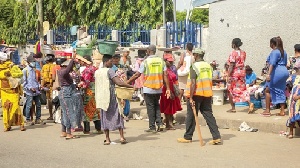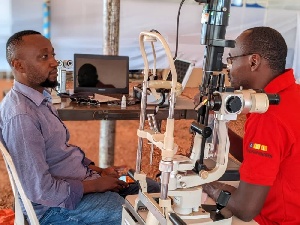- Home - News
- Elections 2024
- News Archive
- Crime & Punishment
- Politics
- Regional
- Editorial
- Health
- Ghanaians Abroad
- Tabloid
- Africa
- Religion
- Photo Archives
- Press Release
General News of Saturday, 24 May 2025
Source: www.ghanawebbers.com
Reimagining Informality: Harnessing the Urban potential of street vending in Ghana
Introduction
In Ghana's bustling cities like Accra and Kumasi, economic resilience thrives. It is not just found in skyscrapers or malls. Street vendors and hawkers create a vibrant urban tapestry. They are essential to the economy, despite often being overlooked.
These vendors, mostly women and youth, work in the informal sector. They face harsh weather, regulatory crackdowns, and infrastructure challenges. Their stalls may seem ordinary but represent survival and creativity. They embody the right to urban space.
Some see street vending as a problem causing congestion and sanitation issues. However, for vendors and their families, it is vital for daily income. This informal economy supports livelihoods and socio-economic mobility in cities with limited formal jobs.
As a Spatial Planner at the Ministry of Local Government, I advocate for change. Informality is not an urban disorder; it reflects citizens navigating economic exclusion. Street vending should be recognized as part of the urban economy. We need to rethink our planning frameworks to include these vital contributors.
Ignoring these economic actors neglects the essence of our cities. We must adopt a more inclusive approach that sees informality as an opportunity. This shift can help us create cities that reflect all residents' realities.
What do the Laws and Policies Say?
Ghana's regulation of urban informality is based on legal frameworks that support inclusion. The Local Governance Act of 2016 mandates local assemblies to ensure order and safety. It also requires them to promote equitable development for all urban residents.
The Draft Final National Urban Policy Framework recognizes the informal economy's importance. It aims to build inclusive, safe, resilient cities aligned with UN Sustainable Development Goal
Entertainment










